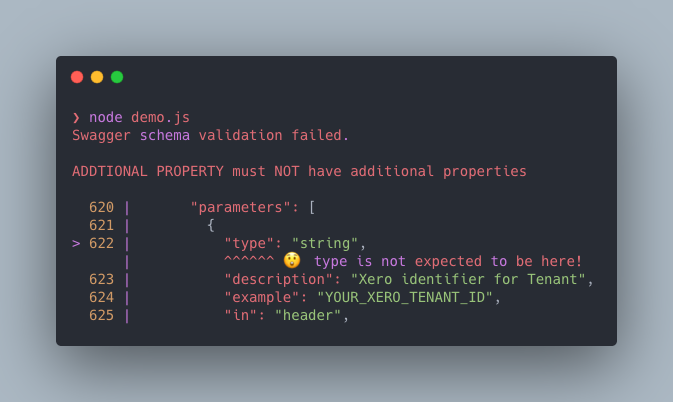What is oas-normalize?
The oas-normalize npm package is designed to help developers work with OpenAPI Specification (OAS) documents. It provides functionalities to normalize, validate, and convert OAS documents, making it easier to handle different versions and formats of API specifications.
What are oas-normalize's main functionalities?
Normalization
This feature allows you to normalize an OpenAPI Specification document. The code sample demonstrates how to create an instance of OASNormalize with a path to an OAS file and validate it.
const OASNormalize = require('oas-normalize');
const oas = new OASNormalize('path/to/oas/file');
oas.validate().then(() => {
console.log('OAS is valid');
}).catch(err => {
console.error('OAS is invalid', err);
});
Conversion
This feature allows you to convert an OAS document to a different version or format. The code sample shows how to convert an OAS document and log the converted document.
const OASNormalize = require('oas-normalize');
const oas = new OASNormalize('path/to/oas/file');
oas.convert().then(convertedOAS => {
console.log('Converted OAS:', convertedOAS);
}).catch(err => {
console.error('Conversion failed', err);
});
Dereferencing
This feature allows you to dereference an OAS document, resolving all $ref pointers. The code sample demonstrates how to dereference an OAS document and log the dereferenced document.
const OASNormalize = require('oas-normalize');
const oas = new OASNormalize('path/to/oas/file');
oas.dereference().then(dereferencedOAS => {
console.log('Dereferenced OAS:', dereferencedOAS);
}).catch(err => {
console.error('Dereferencing failed', err);
});
Other packages similar to oas-normalize
swagger-parser
Swagger Parser is a powerful tool for parsing, validating, and dereferencing Swagger and OpenAPI documents. It offers similar functionalities to oas-normalize, such as validation and dereferencing, but also includes additional features like bundling multiple files into a single OAS document.
openapi-schema-validator
OpenAPI Schema Validator is a package focused on validating OpenAPI documents against the OpenAPI Specification. While it does not offer normalization or conversion features, it provides robust validation capabilities, making it a good choice for ensuring OAS compliance.
swagger-client
Swagger Client is a JavaScript client for Swagger and OpenAPI documents. It provides functionalities for parsing, validating, and interacting with OAS documents. Compared to oas-normalize, it offers more features for interacting with APIs defined by OAS documents, such as making HTTP requests.

Tooling for converting, validating, and parsing OpenAPI, Swagger, and Postman API definitions.





Installation
npm install oas-normalize
Usage
import OASNormalize from 'oas-normalize';
const oas = new OASNormalize(
'https://raw.githubusercontent.com/OAI/OpenAPI-Specification/master/examples/v3.0/petstore-expanded.yaml',
);
await oas
.validate()
.then(() => {
})
.catch(err => {
console.error(err);
});
[!WARNING]
Support for Postman collections is experimental. If you've supplied a Postman collection to the library, it will always be converted to OpenAPI, using @readme/postman-to-openapi before doing any bundling, validating, etc.
.load()
Load and retrive the API definition that oas-normalize was initialized with. Every method of oas-normalize utilizes this internally however if you would like to retrieve the original API definition supplied (for example if all you had was a URL, a file path, or a buffer), you can use .load() to automatically resolve and return its contents.
const file = await oas.load();
console.log(file);
.bundle()
Bundle up the given API definition, resolving any external $ref pointers in the process.
const definition = await oas.bundle();
console.log(definition);
.convert()
Convert a given API definition into an OpenAPI definition JSON object.
await oas
.convert()
.then(definition => {
console.log(definition);
})
.catch(err => {
console.error(err);
});
.deref()
Dereference the given API definition, resolving all $ref pointers in the process.
const definition = await oas.bundle();
console.log(definition);
.validate()
Validate a given API definition. This supports Swagger 2.0 and OpenAPI 3.x API definitions, as well as Postman 2.x collections.
try {
await oas.validate();
} catch (err) {
console.error(err);
}
Error Handling
All thrown validation error messages that direct the user to the line(s) where their errors are present:
OpenAPI schema validation failed.
REQUIRED must have required property 'url'
7 | },
8 | "servers": [
> 9 | {
| ^ ☹️ url is missing here!
10 | "urll": "http://petstore.swagger.io/v2"
11 | }
12 | ],
However if you would like to programatically access this information the SyntaxError error that is thrown contains a details array of AJV errors:
[
{
"instancePath": "/servers/0",
"schemaPath": "#/required",
"keyword": "required",
"params": { "missingProperty": "url" },
"message": "must have required property 'url'",
},
{
"instancePath": "/servers/0",
"schemaPath": "#/additionalProperties",
"keyword": "additionalProperties",
"params": { "additionalProperty": "urll" },
"message": "must NOT have additional properties",
},
];
.version()
Load and retrieve version information about a supplied API definition.
const { specification, version } = await oas.version();
console.log(specification);
console.log(version);
Options
Enable local paths
For security reasons, you need to opt into allowing fetching by a local path. To enable this supply the enablePaths option to the class instance:
const oas = new OASNormalize('./petstore.json', { enablePaths: true });
Colorized errors
If you wish errors from .validate() to be styled and colorized, supply colorizeErrors: true to the class instance:
const oas = new OASNormalize('https://example.com/petstore.json', {
colorizeErrors: true,
});
When enabled thrown validation error messages will now resemble the following:










